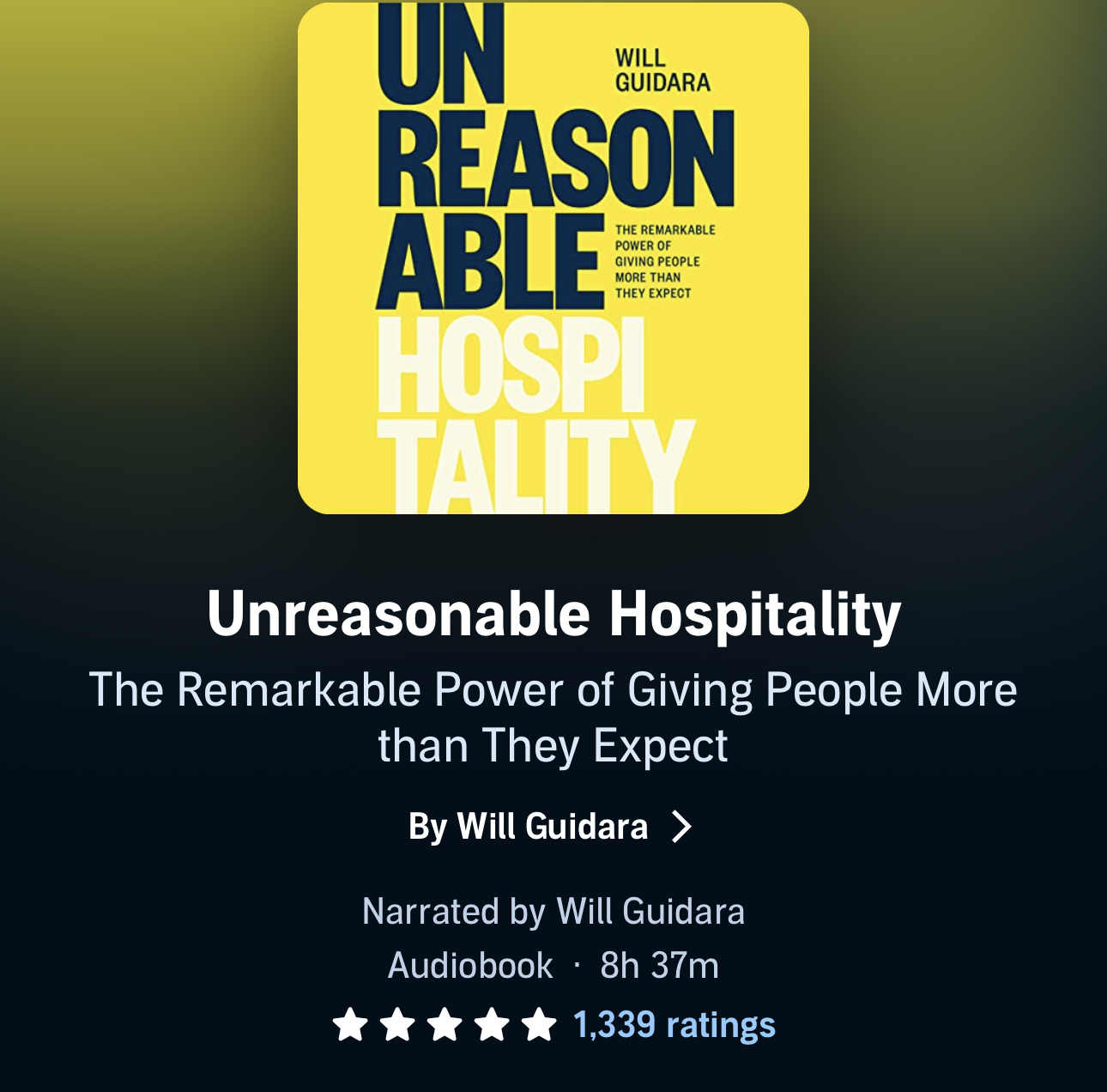Published August 3, 2023
Embracing Criticism: The Wisdom of Will Guidara

In business and life, we all deal with moments of praise and criticism. Naturally, we love the compliments and sometimes get a bit bummed out by the criticism. But what if we could flip our perspective on criticism? What if we saw it as a way to grow instead of an attack on our worth? That's the awesome outlook shared by the famous restaurateur and author, Will Guidara.
Will Guidara, the author of one of the best books I've this year, the genius behind the world-famous restaurant, Eleven Madison Park, and a real force in the business and hospitality world, recently got a not-so-glowing online review of his book, Unreasonable Hospitality. The review said, "Author is a selfish loser without insight. Author tells stories without adding real value. This shouldn’t be published. The attention that this book takes from others is not worth it."
I've read the book, been a part of a Zoom call where Will spoke, and listened to him speak in person at BuiltHOW in Palm Springs this past spring. I can say from personal experience - that review couldn't be further from the truth!
But rather than being defensive, Will's response was gracious and instructive. He said, "Praise is affirmation, criticism is investment," which is a great reminder that criticism can actually be an opportunity for us to improve. Especially when it's given thoughtfully.
Will then went on to share his six rules for giving thoughtful criticism – wisdom that goes way beyond book reviews. These principles are like a mini masterclass in empathy, communication, and leadership:
1- Criticize the behavior, not the person.
2- Criticize without emotion.
3- Criticize in private.
4- Sarcasm is never appropriate.
5- Be willing to criticize yourself as well.
6- Give people the benefit of the doubt. (ask the question before you say the thing.)
Don’t you love that?
Life's a journey and along the way, we get shaped by all sorts of things like how good we may or may not be at handling our feelings, our self-esteem, past experiences, and even hard times we've been through. Our upbringing, beliefs, communication skills, stress, and our personal values play a part in how we react to criticism as well.
But even with all these influences, it's crucial to remember that we're in the driver's seat of our emotions and reactions. We don't have to jump at every criticism thrown our way. We don't have to always speak out, get defensive, or feel the need to win every argument.
Instead, we can choose how to respond. We can choose not to let criticism get under our skin. We can decide to sit back and consider what's being said, instead of just reacting. And most importantly, we can use these critiques to look inside ourselves, to think about how we're growing and how we want to see things.
When we look at criticism this way, it stops being something scary and turns into a tool for self-improvement. So let's roll with this approach and tackle criticism with a cool head and an open heart. It's a choice we can make that pushes us to grow and get better.





